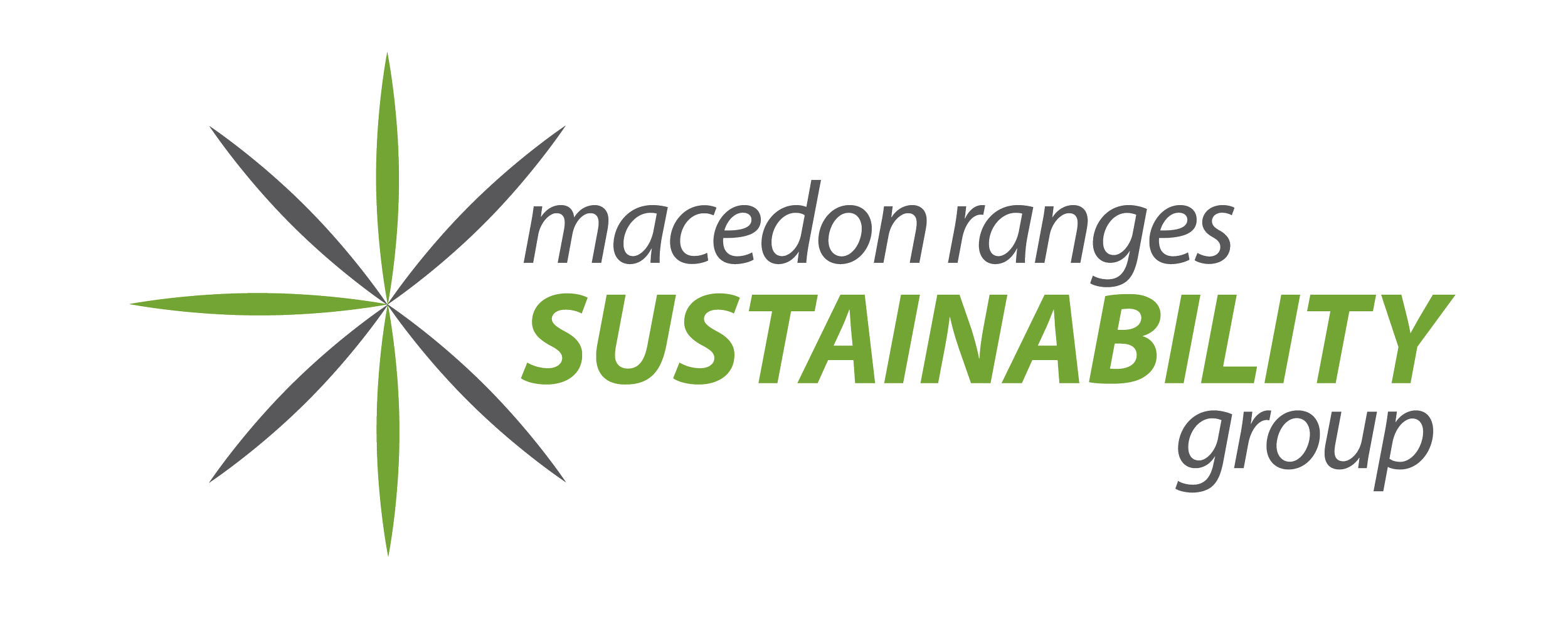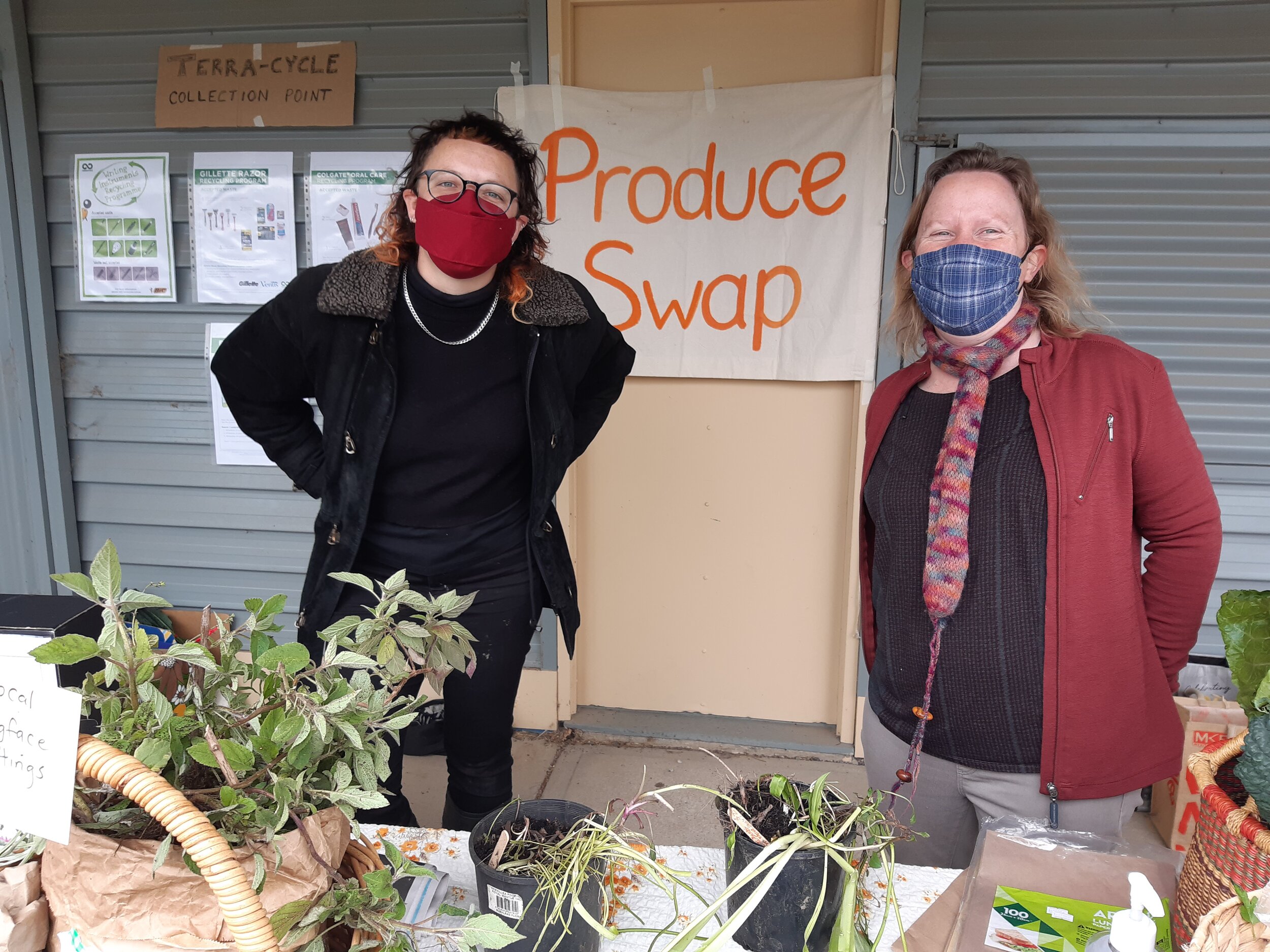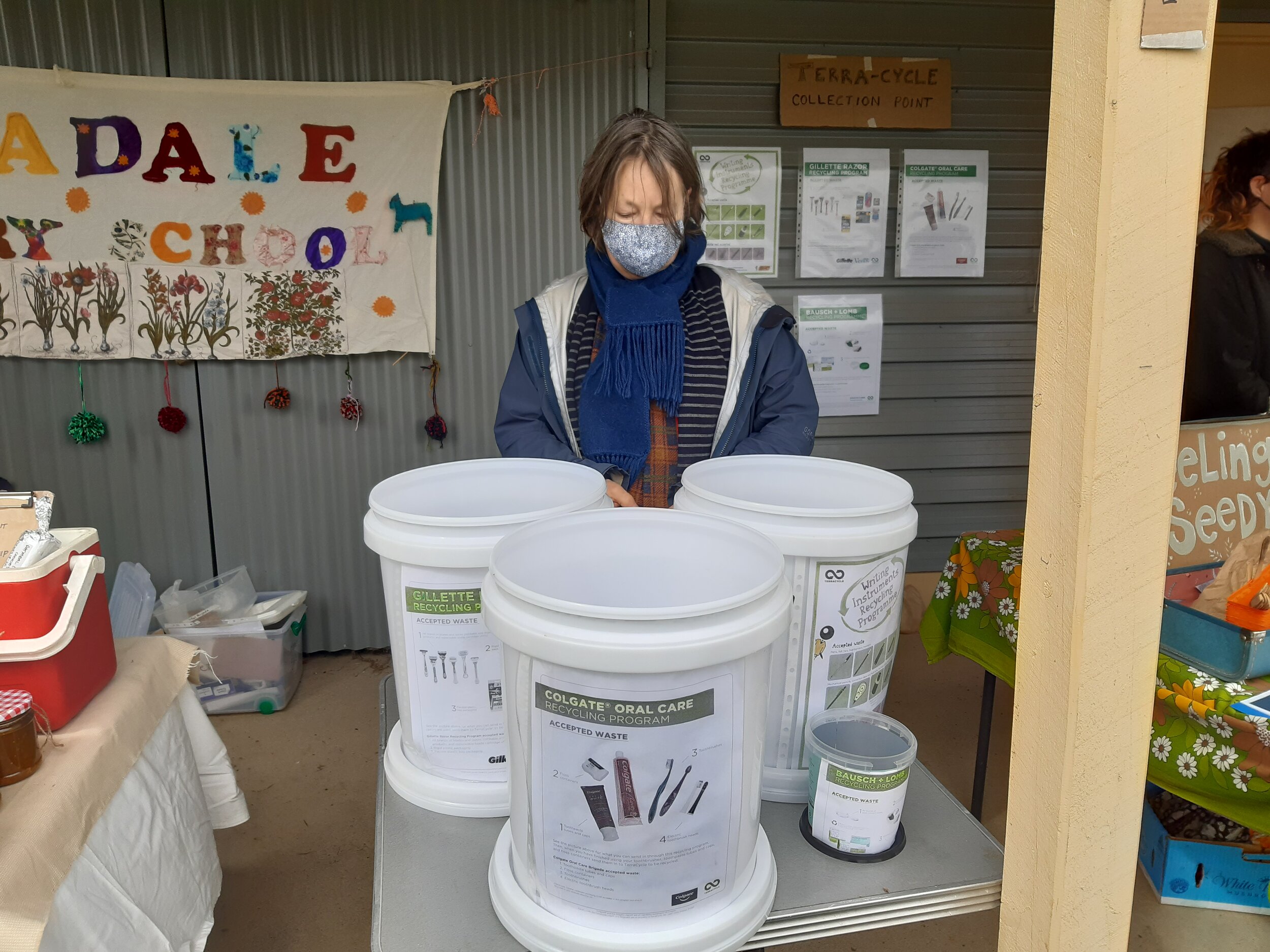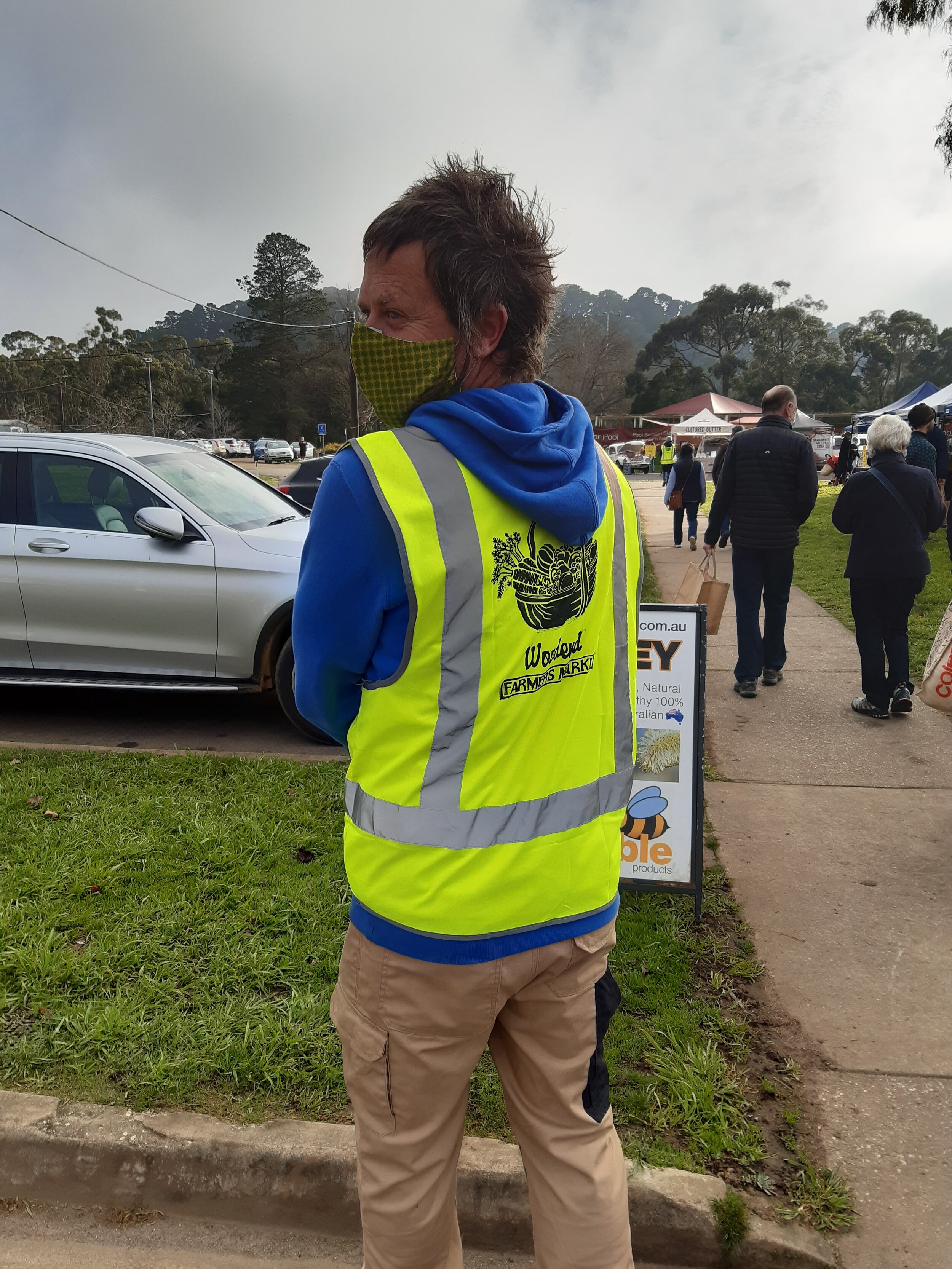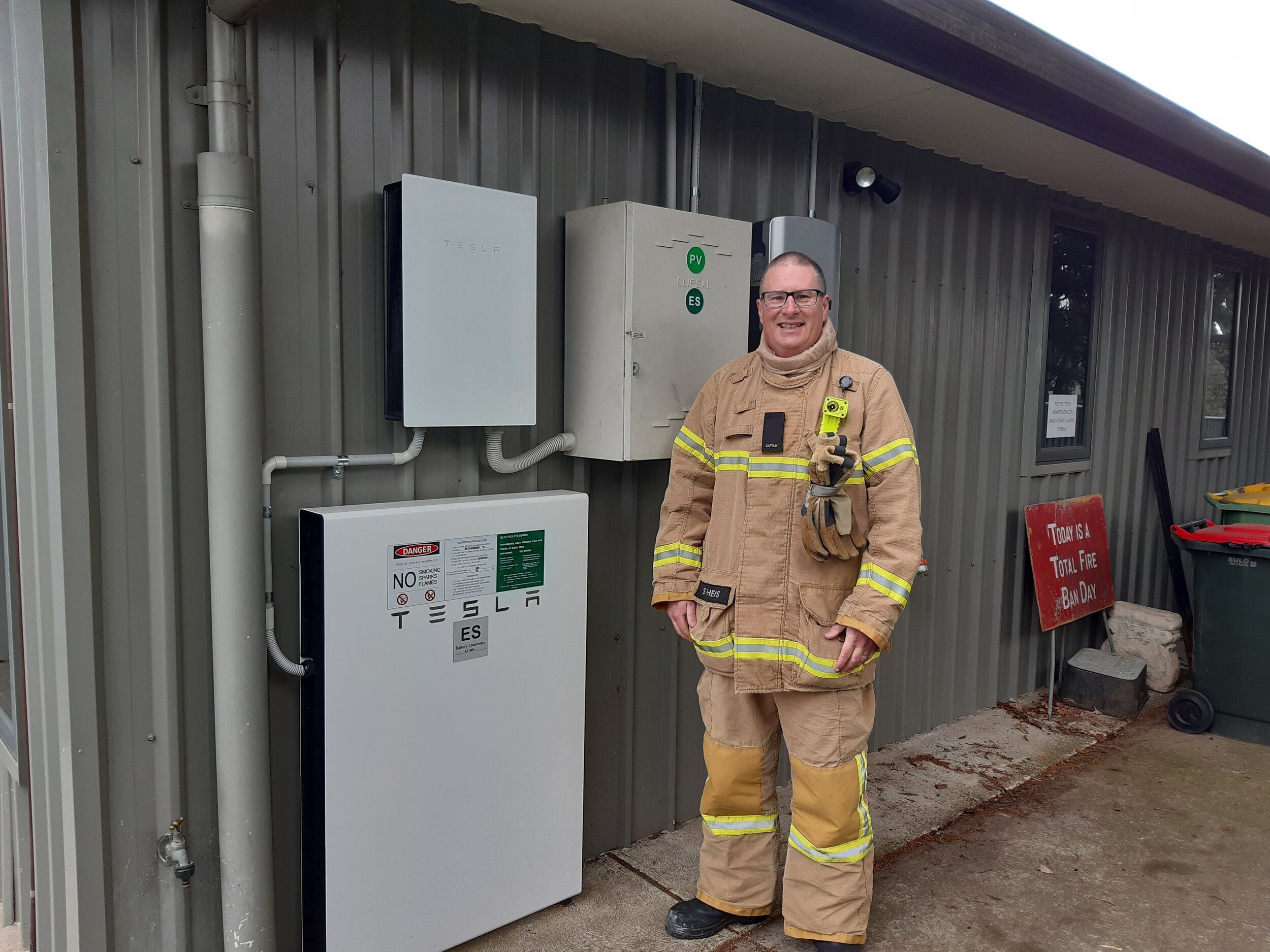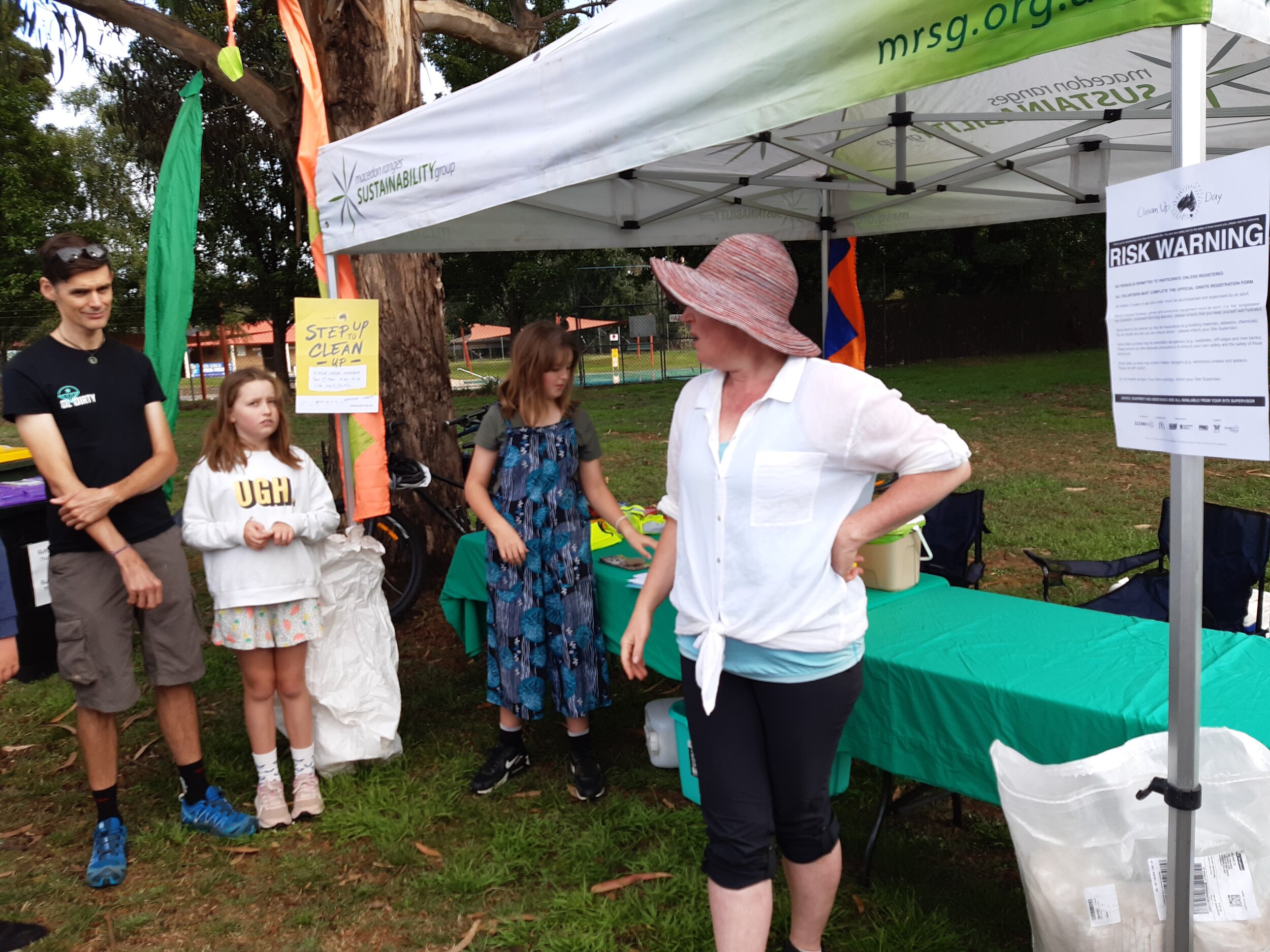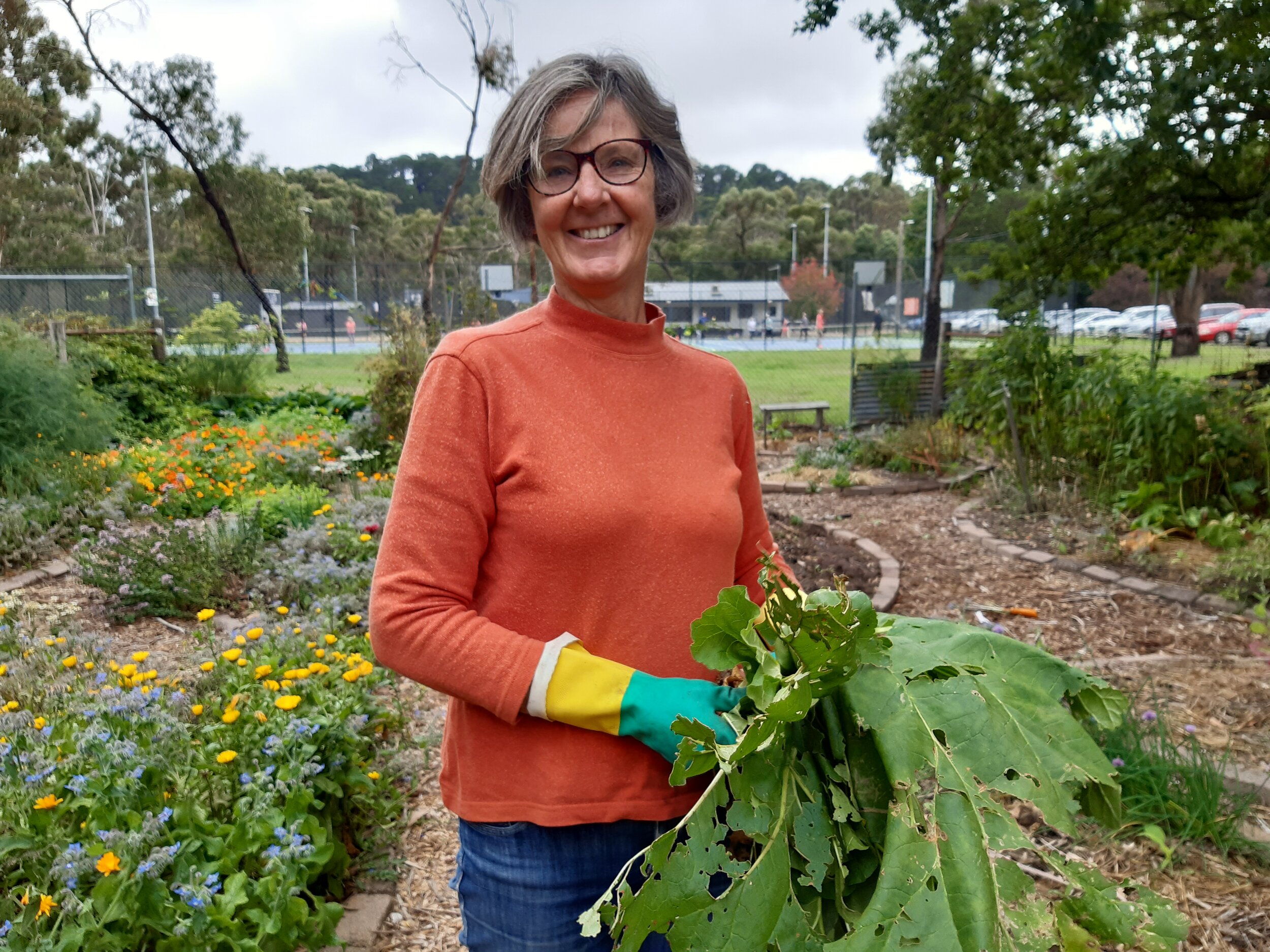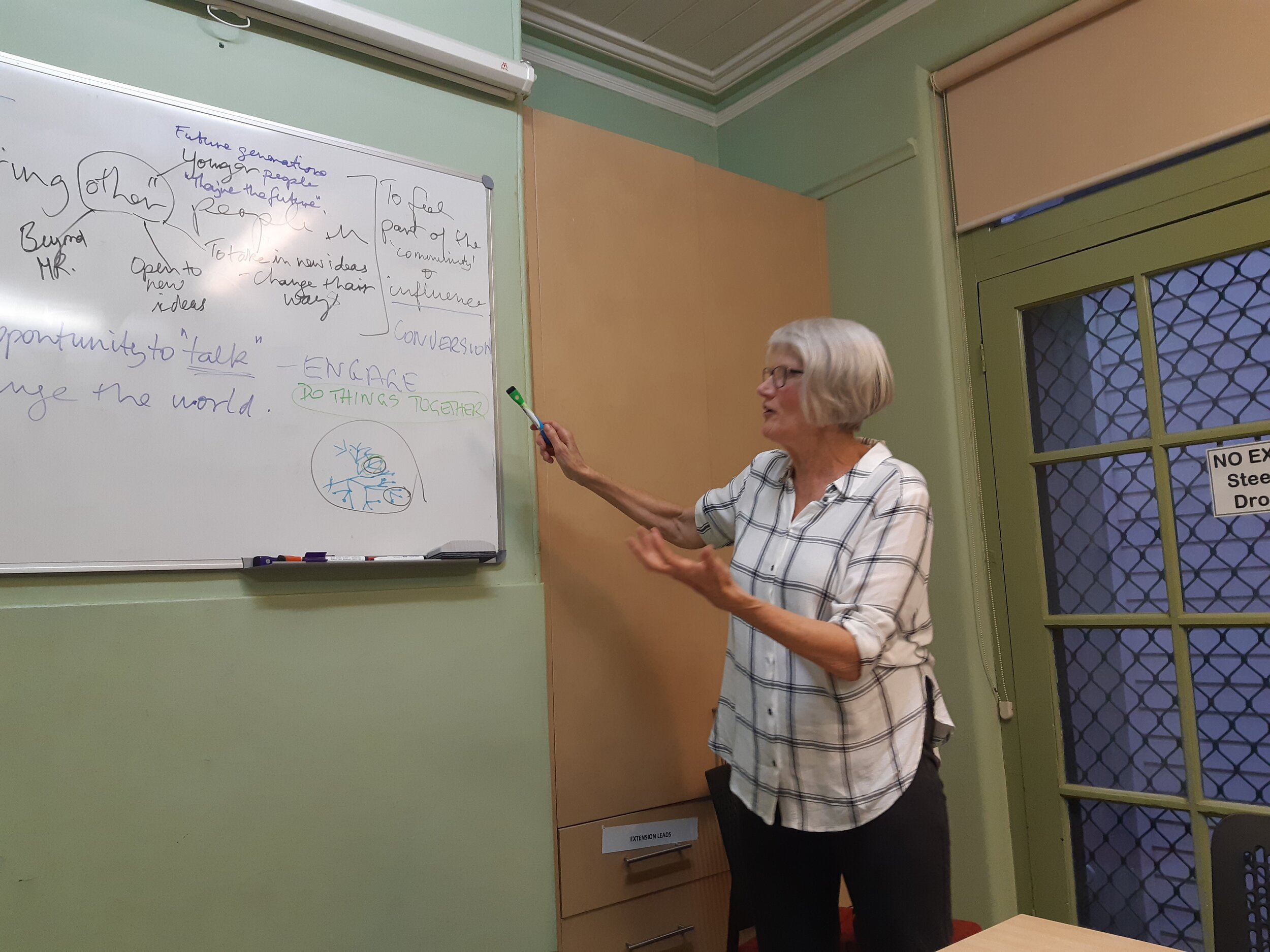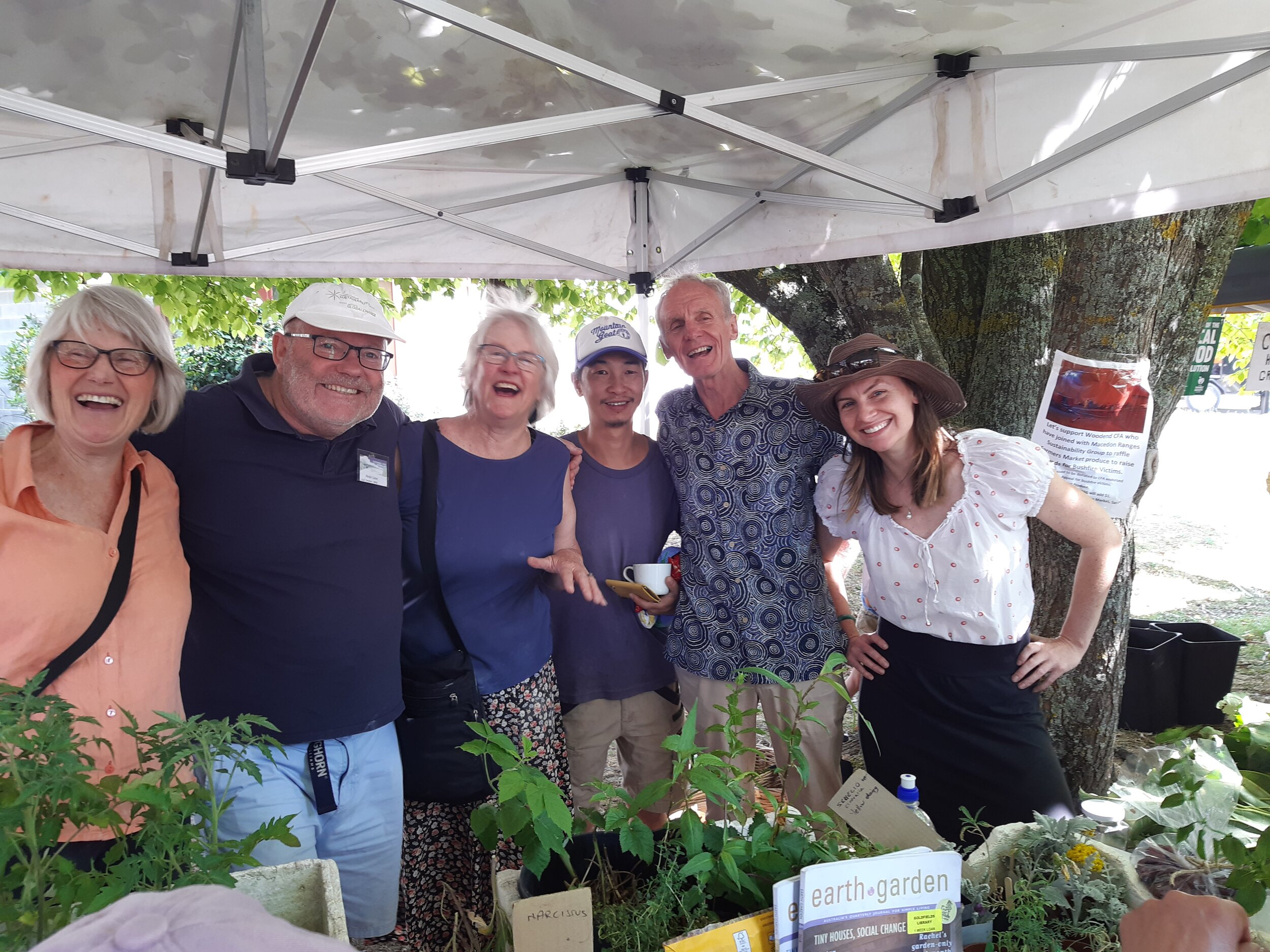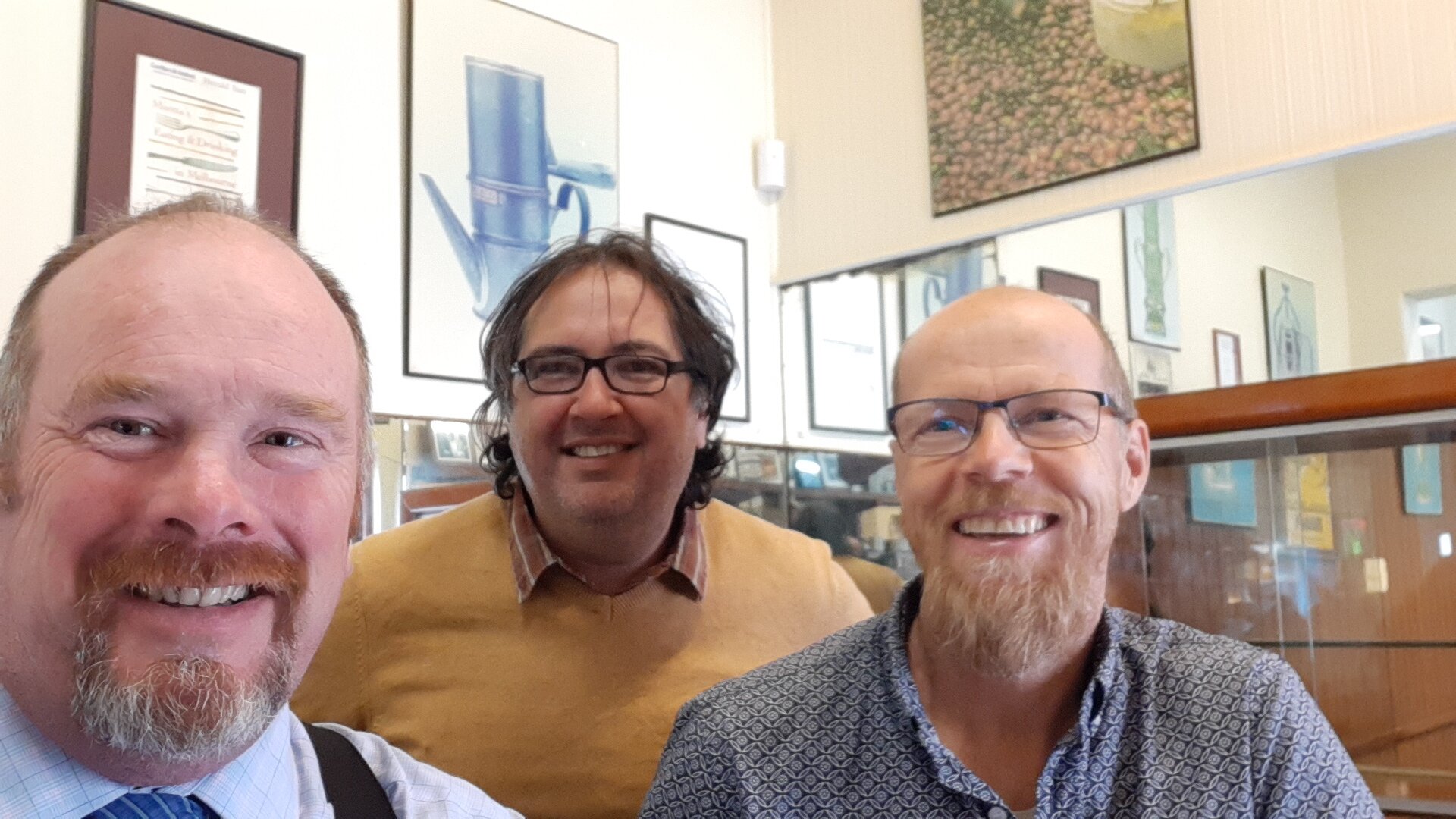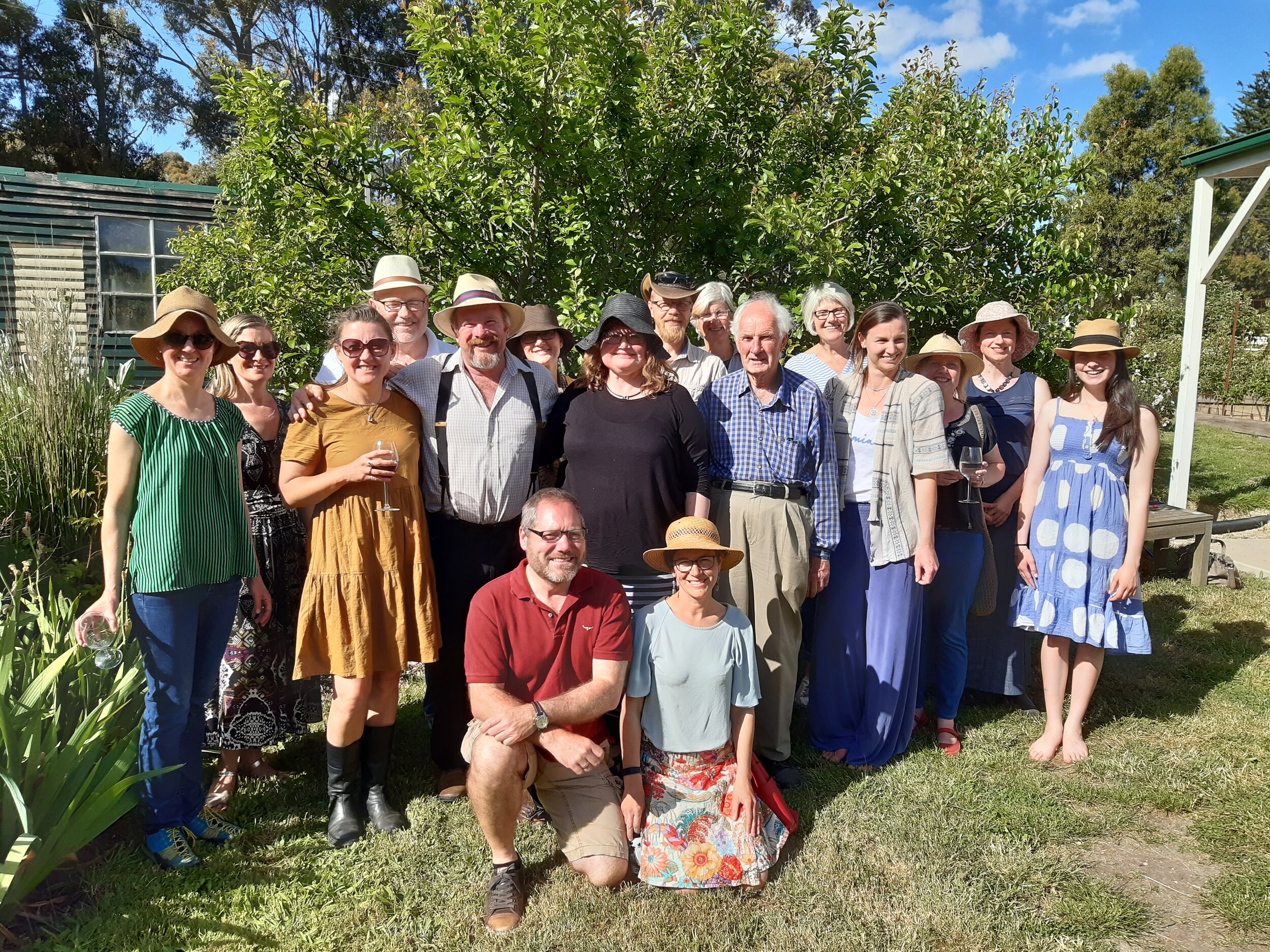President's Report October 2020
One of the chief delights of my role as president is that I get to appreciate first hand the enormous breadth and scale of activities of our twelve action groups, of the Committee, and of the numerous projects conducted by this incredibly vibrant organisation. Just rattling off some of our notable accomplishments of the last twelve months from the top my head:
Malmsbury CFA now has solar with battery, due to a generous grant from MASH, Central Victoria Greenhouse Alliance, and Bank Australia, and the on-the-site legwork from the dedicated members of Sustainable Malmsbury;
Woodend Bee-Friendly Society maturing to the next level in having its own leaders being able to run its training courses which were highly successful,
Sustainable Malmsbury running fermentation and food-preparation workshops;
Veg Action hosting a very popular Winter Veg Recipe Competition online on Facebook with several thousand views;
Waste group running a Clean Up Day at 5 Mile Creek in Woodend;
Woodend Neighbourhood House and Cobaw Health will benefit from the installation of a significant solar power system in the very near future due to a generous grant from MASH’s Community Bonus Scheme and a $6k interest free loan from MRSG's Renewable Energy Fund.
MRSG in partnership with the Macedon Ranges Shire Council have just had a custom Crockery and Glass Wash Trailer constructed and a MoU between the two parties has just been signed whereby MRSG will manage the hiring of the vehicle for events in the Macedon Ranges. The intention is that many of the events of the Ranges will be waste-free in the future. Our gratitude to out-going Vice-President, Peter Lane, for his organisation and dedication to this project.
The list is of course not intended to be exhaustive; one can read the Action Group report for more comprehensive details. The list is however illustrative of the huge impact made by MRSG groups, often in partnership with Council and other organisations, in the Macedon Ranges.
On the more prosaic governance front: MRSG is in excellent financial health and continues to attract grants on a regular basis to fund its projects; several policies and procedures have been developed to address compliance obligations; and membership numbers continue to rise at an astonishing rate. As at October 2020 MRSG has 453 members as compared to 398 members this time last year (a rise of 14%), and 150 members in March 2017 (a three-fold increase!)
The figures and achievements listed above would indeed be deemed commendable during ordinary times. However, for the past six or so months, we have been living in anything but ordinary times, where the dark clouds of COVID-19 have hovered over all of us, perhaps not so much in terms of the devastating loss of life experienced elsewhere in the world, but in economic terms with the loss of jobs and income, and equally palpably in social terms with the lock-down restrictions, the closure of schools and the stress for many parents of home-schooling, libraries, sporting clubs, pubs and restaurants. There still remains a pervading public malaise, with feelings of fear, isolation, and exhaustion, not knowing how or when the pandemic will exhaust itself and life return to normality.
I would like to use this report to share with you a few ways in which MRSG has responded to this crisis because 1) it has brought to the fore the hitherto under-appreciated strength and resilience of our organisation as a mutually supportive community built on personal relationships and friendships; and 2) it has caused many of us to re-examine the fundamental reasons why we are doing what we are doing. For the sake of brevity, I shall only raise a few cases to illustrate my points.
Woodend Community Farmers' Market
It may seem an eternity but cast your minds back to six months ago and the very early stages of the pandemic where there was great fear in the public sphere and for some insane reason people started hoarding toilet paper and food items, and supermarkets were haunted places with empty shelves. Naturally the question was raised in the Farmers' Market action group in this early period whether or not it would be prudent to proceed with the Woodend Community Farmers' Market. Fundamental to the question whether or not to proceed were the reasons for having a market in the first place. Was the farmers' market merely an optional, glorified fête for the well-heeled or did the farmers' market serve a deeper purpose? Was the farmers' market an essential service? Many in the farmers' market action group at the time were not convinced and thereby deemed that the market be cancelled. Their decision was understandable in light of the fear, the perceived risk, and uncertainty at the time. Nevertheless, the issue was escalated, with the approval of the farmers' market action group leader, in an unprecedented step, to MRSG Committee level where, after a very open and constructive debate, a secret ballot was held using different coloured marbles. The result was that the Committee affirmed that the farmers' market played an essential role in local food security in the Macedon Ranges, that the livelihoods of our local farmers and producers and their families were dependent on the market, and that local residents required access to high quality locally produced food (Remember that supermarkets had empty shelves at the time). We voted overwhelmingly that the Woodend Community Farmers' Market should proceed and that the Committee members and leaders of the other action groups be encouraged to step up, if they wished, to function as stewards to ensure social distancing and hygienic practices. We later felt our position vindicated as governments at both State and Federal levels decreed that farmers' markets were an essential service and therefore not subject to assembly-restrictions. Those of us who volunteered on the first Saturday of April, the first market run with COVID-19 restrictions, remember the surreal occasion and the tangible relief and gratitude of both patrons and stallholders alike. The success of that market and all the subsequent monthly markets required an enormous amount of planning and management expertise. Two individuals who from the very beginning were responsible for making the Woodend Community Farmers' Market such a professionally run and exemplary event are Kathryn Bishop (Market Manager) and Robert Bruhn (Action Group Leader). Recognition must be given to this pair for their dedication, skills, and countless hours spent in planning and management. These two, together with Matty Be, who joined the leadership team several months ago, have elevated the market to the next level with around thirty volunteers helping out each month. It is not an exaggeration to state that after 6 months of pandemic the Woodend Community Farmers' Market is stronger than ever before and is more than ever owned and supported by the broader community.
Another indication of the commitment of our farmers' market action group to the welfare of local farmers, producers and residents is the creation of Farmers' Market Online. Now in the fourth month of its proof of concept phase the project has been incredibly successful in enabling farmers/producers to continue sell their produce to residents, even on the occasions when other farmers' markets in the region were cancelled.
2020 Macedon Ranges Virtual Sustainable Living Festival
Planning commenced for the 2020 Macedon Ranges Sustainable Living Festival 12 months ago with the formation of a new action group. One of the first major decisions made was to move the next festival from March to October, thereby avoiding the festival fatigue and high temperatures of the early part of the year and enabling schools to participate and showcase what the students have learned in their sustainability curriculum. Indeed Saturday October 3rd 2020 was to be the date of the festival. Had we not changed the date then it would have been entirely possible to have sneaked the festival in before the onset of pandemic restrictions. But "hindsight is as common and bland as boiled potatoes" (Maureen Howard). The fact is that the SLF action group, under the inspiring leadership of Alice Aird, aimed high to take the festival to the next level and engender more community involvement and participation. This was not to be, at least for this year.
With the onset of the pandemic crisis and the dire consequences for several businesses in the local region it was decided that the main focus of the 2020 festival ought to be to support local businesses and community groups. The normally one-day event would now be expanded into a year-long virtual event giving businesses and community groups the opportunity to promote their products and services via podcasts, blogs, videos, and webinars on our website and through our newsletter and social media pages. Community groups can promote themselves for free; local businesses at a greatly reduced rate (enabling us to cover our expenses). The virtual festival will run until September 2021 providing businesses and non-profit organisations the opportunity to connect with local residents and to provide them with the means to help them live more sustainably. See https://mrsg.org.au/sustainable-living-festival
Fingers crossed that we can have a conventional one day event in October 2021 to complement the virtual festival.
Mutually-supporting groups
The constant strain of isolation and the pervading climate of fear has led to concerns about mental health especially for people living by themselves and the vulnerable members of the community. I am proud of several of our action groups who spontaneously sought to help others to cope with the stress by providing friendship and mutual support. The small faithful band of volunteers from the Woodend Community Garden continued through the cold, wet winter to meet each Friday morning to work on the garden together, while adhering to social distancing of course. The Kyneton Transition Hub met regularly at the social foundry for coffee together and when this was no longer possible they continued to meet on Zoom. The Sustainable Malmsbury group ensured that vulnerable members of the Malmsbury township had the necessities of life by providing a Coronavirus Community Support network and making fabric masks for the locals.
The common theme in these three examples, and again I could have drawn upon several others, is the commitment of our members to the well-being of each other and others in the community. The crisis has directly led to greater community resilience, something that we may need to draw upon in the future. While the statistics are presently encouraging we cannot assume that the resumption of normalcy as we know it is just around the corner. We are still in the process of working out a new normal, living sustainably, economically, socially, environmentally with COVID-19.
What is our focus for the immediate and long-term future
MRSG will continue to explore ways of supporting local businesses, local farmers and producers, and promoting local food security (economic sustainability). We are committed to working with Council and community organisations in building social capital by promoting connections and conversations between people and groups, and thereby creating more resilient communities (social sustainability). We shall also focus on improving the health of vulnerable people in the community with projects geared towards improving the livability of houses in extreme weather with the Healthy Homes project as well as promoting healthier diets with Veg Action in partnership with Cobaw Health and Council (human sustainability). Arising from Cool Changes 3442 workshops we intend to apply Zero Net Emission considerations over the wide span of MRSG's activities and in co-operation with other organisations in the region (environmental sustainability).
My profound gratitude to the dedicated project and action group leaders and Committee members, and to the many MRSG volunteers who make the Macedon Ranges such an attractive and unique place to live.
Dr David Gormley-O'Brien
President MRSG
